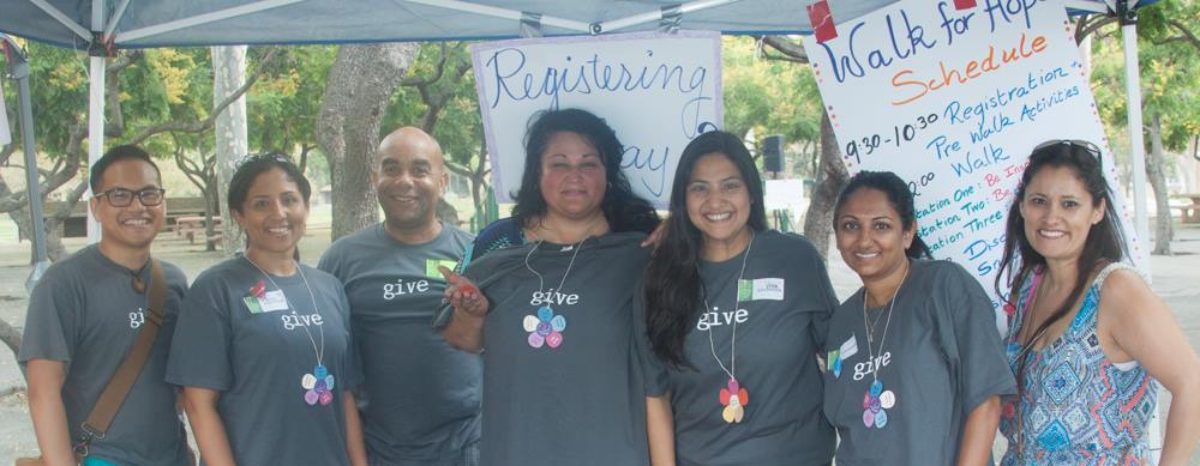International Youth Movement turns to 20th Century Humanitarians for Inspiration
INTERNATIONAL YOUTH MOVEMENT TURNS TO 20TH CENTURY HUMANITARIANS FOR INSPIRATION
Los Angeles – Coinciding with the anniversary of Mahatma Gandhi, delegates to the Youth for Human Rights International Summit celebrated his life and the lives of other great 20th century humanitarians: Nelson Mandela, L. Ron Hubbard and Dr. Martin Luther King, Jr. The standing room only event, held in association with the Times of India , was held at the Garden Pavilion at the Church of Scientology Celebrity Centre International in Hollywood.
The event concluded a three-day Youth for Human Rights International Summit and Film Festival organized by Youth for Human Rights International and the Human Rights Department of the Church of Scientology. TV actress, Marisol Nichols, mc-ed the event, which included stirring renditions of the life work of each human rights icon interspersed with stunning musical numbers.
Kishore Kaul, a native Indian who is the founder of the Indo-American Business Promotion Council, presented the life story of Mahatma Gandhi. Mr. Kaul said, “On a global scale, Gandhi demonstrated that a man could win allegiance, ‘not merely by the cunning game of political fraud and trickery, but through the living example of a morally exalted way of life.’ He was the catalyst for three of the major revolutions of the 20th century: the revolutions against colonialism, against racism and against violence.†Gandhi founded the Natal Indian Congress to fight color prejudice. Through the Congress he launched his legendary peaceful pursuit of human rights. As Gandhi said, “You must be the change you see in the worldâ€.
Kuldeep Singh, youth delegate of India said, “From the challenges I have faced as an Indian and a Sikh, now a resident of New York, I am grateful to be part of a tradition started by the great Mahatma Gandhi. As a delegate (Youth for Human Rights International Human Rights Summit), I have had the opportunity to meet new people from all around the world and to learn of their like experiences with human rights abuses and their solutions. We are each returning to our communities with increased determination to effectively address the injustices that plague us.â€
Mmbatho Potwana, the delegate from South Africa, was presenter of the humanitarian accomplishments of Nelson Mandela. Ms. Potwana, who herself dreams of taking her place in the South African Parliament, stated, “While it is unique that Nelson Mandela became president at all, it is most notable that on 10 May 1994 he became the first democratically elected State President of South Africa. His election marked the end of apartheid and oppression for millions of South Africans.†In his autobiography, Long Walk to Freedom, Mr. Mandela says, “For to be free is not merely to cast off one’s chains, but to live in a way that respects and enhances the freedom of others.â€
Fellow delegate Mohapi Mohlamonyane also expressed her thoughts on human rights – “I can’t imagine a world without rights. The thought of not having rights in our nation is like the thought of not being cared for, the thought of not going to school or the thought of not being able to speak your mind. After all, our rights do secure these things. Freedom of speech is one of my favorite rights because I am able to express myself and share my ideas and opinions on various subjects with my fellow beings. It is also my duty to listen to others when they talk and to respect their opinions even if they differ from me. As a South African youth, I feel very powerful, as I am the product of the struggle of a nation that fought to Exercise its human rights. I know that I can make a difference in this little corner. Like a stone thrown into a pond, I, too, can make ripples that affect the entire pond.â€
The President of the Church of Scientology International, Reverend Heber C. Jentzsch presented the life of L. Ron Hubbard, founder of the Scientology religion. His humanitarian work has served to vanquish illiteracy, drug-addiction, and failing morality for millions. Mr. Hubbard once remarked, “There are only two tests of a life well lived: Did one do as one intended? And were people glad one lived?†Millions who have benefited from his researches answer in the affirmative.
Reverend Alfreddie Johnson, founder of the World Literacy Crusade and Men Who Care, spoke eloquently to describe the life of Dr. Martin Luther King, Jr. “I have a dream that one day this nation will rise up and live out the true meaning of its creed: ‘We hold these truths to be self-evident: that all men are created equal.’†From winning the Nobel Peace Prize in 1964 in Oslo Norway to his famed speech on the lawns before the White House, the immutable path of Dr. King followed directly in the footprints left by Mahatma Gandhi. “Negros of the United States following the people of India have demonstrated that non-violence is not sterile passivity, but a powerful force which makes for social transformation. I believe that unarmed truth and unconditional love will have the final word in reality. This is why right temporarily defeated is stronger than evil triumphant.â€
The delegates were brought on stage and received standing ovation in acknowledgment of their commitment to the cause of human rights and the impact that they are making on the world through the Youth for Human Rights movement. A special visit by the South African Consulate General, the honorable Janet Ndolovu, also focused on the vital need for such work to be done. Stellar entertainment was provided by the company dancers, Broadway singer, Miles Alden, recording artists Shannon Star Roberts and A. J. Jackson, and award-winning composer/arranger/singer, Howard McCrary. The Sahala Dancers provided a touch of India in honor of Gandhi’s birthday.
